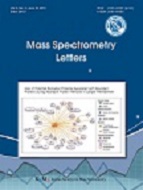
- P-ISSN 2233-4203
- E-ISSN 2093-8950

Coptidis Rhizoma (CR) has been used widely in traditional medicine to treat common diseases. This study aimed to develop a high-sensitivity liquid chromatography-tandem mass (LC-MS) spectrometry method for the evaluation of the pharmacokinetics of a new natural product that contain CR extract with the main bioactive compound, berberine, at trace concentrations. Human plasma samples were pretreated with methanol by a protein precipitation method. Berberine was analyzed on a Kinetex C18 column (2.1 mm × 50 mm, 100 Å, 1.7 µm) using a mobile phase of 10 mM ammonium formate/0.1% formic acid in water (A) and acetonitrile (B) (50:50, v/v) with a flow rate of 0.25 mL/min. The analyte was detected by using electrospray ionization in positive mode with multiple reaction monitoring (MRM). The method was sensitive, with a lower limit of quantification of 1 pg/mL, which has not been previously obtained. The method was validated (over the range of 1–50 pg/mL) and applied successfully for the pharmacokinetic study of human plasma samples.
Benzie, I. F. F. (2011). Biomolecular and Clinical Aspects:Taylor &Francis Group.
Neelesh, S. (2014). . J Molecules, 19, 14567-.
Pharmacopoeia Commission of the People's Republic of China. Pharmacopoeia of the People's Republic of China.
Hu, J. P. (2000). . Oral Dis, 6, 297-.
Tang, J. (2009). . Ethnopharmacol, 126, 5-.
Chin, L. W. (2010). . Arch. Virol, 155, 1933-.
이병훈. (2017). Coptidis Rhizoma extract inhibits replication of respiratory syncytial virus in vitro and in vivo by inducing antiviral state. The Journal of Microbiology, 55(6), 488-498.
Meng, F. C. (2018). . Chin. Med, 13, 13-.
Deng, Y. (2008). . J. Chromatogr. B, 863, 195-.
Feng, J. (2010). . J. Pharm. Biomed. Anal, 53, 591-.
Liu, M. (2015). . J. Chromatogr. B, 1006, 8-.
Li, X. (2009). . Chromatographia, 70, 1113-.
World Medical Association. (2013). . JAMA, 310, 2191-.
Hutchinson, D.R. ICH GCP guidelines: indexed pocketbook: ICH harmonised tripartite guideline:guideline for good clinical practice E6 (R1).
Korea Food and Drug Administration. Korea good clinical practice (KGCP) guidelines.
U.S Department of Health and Human Services Food and Drug Administration. Guidance for Industry Bioanalytical Method Validation.